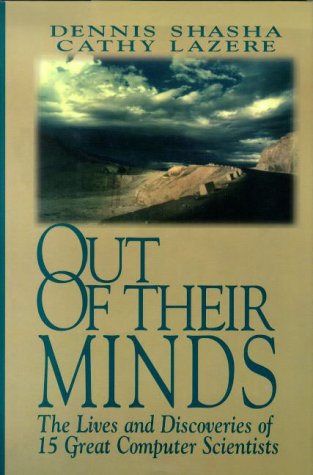copernicus an imprint of springer verlag new york (2 Ergebnisse)
Suchfilter
Produktart
- Alle Product Types
- Bücher (2)
- Magazine & Zeitschriften (Keine weiteren Ergebnisse entsprechen dieser Verfeinerung)
- Comics (Keine weiteren Ergebnisse entsprechen dieser Verfeinerung)
- Noten (Keine weiteren Ergebnisse entsprechen dieser Verfeinerung)
- Kunst, Grafik & Poster (Keine weiteren Ergebnisse entsprechen dieser Verfeinerung)
- Fotografien (Keine weiteren Ergebnisse entsprechen dieser Verfeinerung)
- Karten (Keine weiteren Ergebnisse entsprechen dieser Verfeinerung)
- Manuskripte & Papierantiquitäten (Keine weiteren Ergebnisse entsprechen dieser Verfeinerung)
Zustand Mehr dazu
- Neu (Keine weiteren Ergebnisse entsprechen dieser Verfeinerung)
- Wie Neu, Sehr Gut oder Gut Bis Sehr Gut (Keine weiteren Ergebnisse entsprechen dieser Verfeinerung)
- Gut oder Befriedigend (2)
- Ausreichend oder Schlecht (Keine weiteren Ergebnisse entsprechen dieser Verfeinerung)
- Wie beschrieben (Keine weiteren Ergebnisse entsprechen dieser Verfeinerung)
Einband
- alle Einbände
- Hardcover (2)
- Softcover (Keine weiteren Ergebnisse entsprechen dieser Verfeinerung)
Weitere Eigenschaften
- Erstausgabe (2)
- Signiert (Keine weiteren Ergebnisse entsprechen dieser Verfeinerung)
- Schutzumschlag (2)
- Angebotsfoto (Keine weiteren Ergebnisse entsprechen dieser Verfeinerung)
Sprache (1)
Preis
- Beliebiger Preis
- Weniger als EUR 20 (Keine weiteren Ergebnisse entsprechen dieser Verfeinerung)
- EUR 20 bis EUR 45
- Mehr als EUR 45
Gratisversand
- Kostenloser Versand nach USA (Keine weiteren Ergebnisse entsprechen dieser Verfeinerung)
Land des Verkäufers
Verkäuferbewertung
-
Out Of Their Minds; The Lives And Discoveries of 15 Great Computer Scientists
Verlag: Copernicus [An Imprint of Springer-Verlag], New York, 1995
ISBN 10: 0387979921 ISBN 13: 9780387979922
Sprache: Englisch
Anbieter: Ground Zero Books, Ltd., Silver Spring, MD, USA
Erstausgabe
Hardcover. Zustand: Good. Zustand des Schutzumschlags: Good. First Printing [Stated]. xi, [1], 291, [1] pages. Illustrated endpapers. Illustrations. Glossary. References. Index. Ex-library with the usual library markings. DJ is in a plastic sleeve which is taped to the boards. Imagine living during the Renaissance and being able to interview that era's greatest scientists about their inspirations, discoveries, and personal interests. The latter half of our century has seen its own Renaissance--information technology has changed irrevocable the way we live, work, and think about the world. We are fortunate, therefore, that the authors of Out of Their Minds have been able to talk so candidly with the founders of computer science. The fifteen are divided into Linguists, Algorithmists, Architects, and Sculptors of Machine Intelligence. The individuals are John Backus, John McCarthy, Alan C. Kay, Edsger W. Dijkstra, Michael O Rabin, Donald E. Knuth, Robert E. Tarjan, Leslie Tamport, Steven Cook, Leonid Levin, Frederick P. Brooks, Jr., Burton J. Smith, W. Daniel Hillis, Edward A. Feigenbaum, and Douglas B. Lenat. "Out of Their Minds" profiles 15 of the planet's foremost computer scientists, including eight winners of the Turing Award, computing's Nobel Prize. Based on recent interviews, the scientists are revealed in fascinating anecdotes about their early inspirations and influences, contributions, and thoughts on the field's explosive future. "A fascinating collection of profiles and interviews with some of the men . who brought us (to the computing age)"--"The New York Times". Dennis Elliot Shasha is an American professor of computer science at the Courant Institute of Mathematical Sciences, a division of New York University.[1] He is also an associate director of NYU WIRELESS.[2] His current areas of research include work done with biologists on pattern discovery for microarrays, combinatorial design, network inference, and protein docking; work done with physicists, musicians, and professionals in finance on algorithms for time series; and work on database applications in untrusted environments. Other areas of interest include database tuning as well as tree and graph matching. Cathy Lazere is a freelance writer who specializes in international corporate finance and technology. She has worked as an editor at McGraw-Hill and Business International, a division of the Economist Group. Ms. Lazere holds a B.A. from Yale and an M.B.A. from New York University.
-
Beyond Calculation; The Next Fifty Years of Computing
Verlag: Copernicus (an Imprint of Springer-Verlag), New York, 1997
ISBN 10: 0387949321 ISBN 13: 9780387949321
Sprache: Englisch
Anbieter: Ground Zero Books, Ltd., Silver Spring, MD, USA
Erstausgabe
Hardcover. Zustand: Very good. Zustand des Schutzumschlags: Very good. First Printing [Stated]. xviii, [2], 313, [3] pages. Illustrations. References. Contributors. Glossary. Index. Foreword by James Burke. Peter James Denning (born January 6, 1942) is an American computer scientist and writer. He is best known for pioneering work in virtual memory, which addressed thrashing in operating systems and became the reference standard for all memory management policies. He is also known for his works on principles of operating systems, operational analysis of queueing network systems, design and implementation of CSNET, the ACM digital library, and codifying the great principles of computing. Robert Melancton Metcalfe (born April 7, 1946) is an engineer-entrepreneur who helped pioneer the Internet starting in 1970, co-invented Ethernet, co-founded 3Com and formulated Metcalfe's law. He is Professor of Innovation and Entrepreneurship at The University of Texas at Austin. Metcalfe has received the IEEE Medal of Honor and National Medal of Technology and Innovation In March 1997, the Association for Computing Machinery celebrated the fiftieth anniversary of the electronic computer. Computers are everywhere: in our cars, our homes, our supermarkets, at the office, and at the local hospital. But as the contributors to this volume make clear, the scientific, social and economic impact of computers is only now beginning to be felt. These sixteen invited essays on the future of computing take on a dazzling variety of topics, with opinions from such experts as Gordon Bell, Sherry Turkle, Edsger W. Dijkstra, Paul Abraham, Donald Norman, Franz Alt, and David Gelernter. This brilliantly eclectic collection will fascinate everybody with an interest in computers and where they are leading us. Among the topics addressed are: Simulation, Human Intelligence, Information Warfare, and Innovation.



